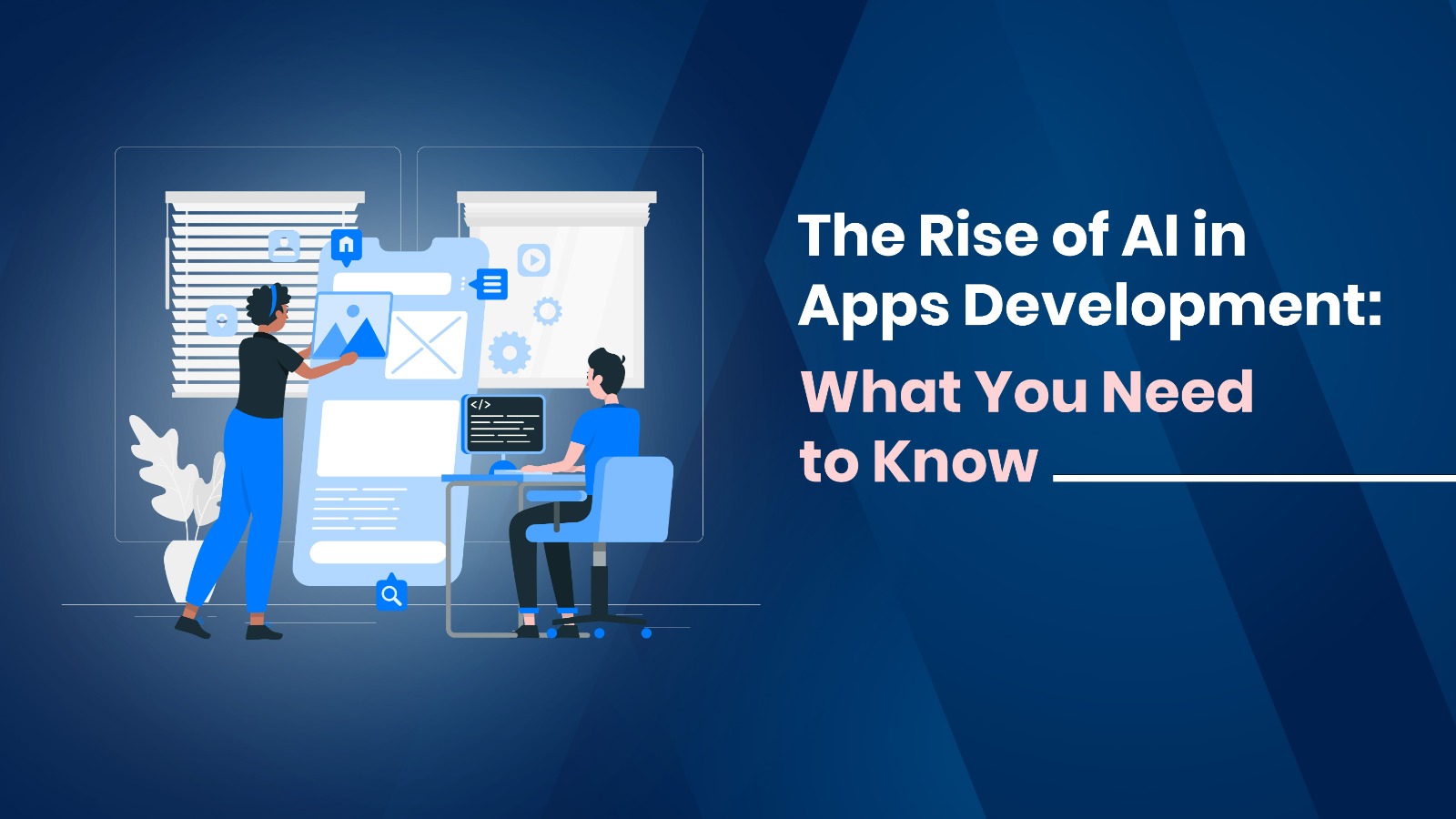The Rise of AI in Apps Development: What You Need to Know

In the rapidly evolving landscape of technology, Artificial Intelligence (AI) has emerged as a transformative force, reshaping industries across the board. One of the most notable areas where AI is making a significant impact is application development. As businesses and consumers alike demand more intelligent, intuitive, and responsive mobile and web applications, AI is proving to be the catalyst for innovation and efficiency.
Artificial intelligence is revolutionizing app development by infusing intelligence into every interaction, from personalized user experiences to automated processes, driving innovation that reshapes how we connect and engage in the digital age."
Understanding AI in App Development
AI in app development refers to the integration of artificial intelligence technologies and techniques into the process of creating, testing, deploying, and maintaining applications. Traditionally, app development relied heavily on manual coding and programming logic to achieve functionality. However, AI introduces a paradigm shift by enabling machines to learn from data, recognize patterns, and make decisions autonomously. This capability enhances the speed, accuracy, and adaptability of app development processes, leading to faster time-to-market and improved user experiences.
The Role of AI in Enhancing User Experiences
One of the primary drivers behind the adoption of AI in app development is its ability to enhance user experiences (UX). AI-powered applications can analyze user behavior, preferences, and interactions in real time, allowing developers to personalize content, recommendations, and features dynamically. For instance, AI algorithms can optimize app interfaces based on individual user preferences, anticipate user needs through predictive analytics, and deliver contextual information proactively. This level of personalization not only increases user satisfaction but also boosts engagement and retention rates.
AI-Powered Automation and Efficiency
Another significant benefit of AI in app development is its capacity to automate routine tasks and streamline complex processes. AI algorithms can automate code generation, quality assurance testing, bug detection, and even user support functionalities. This automation reduces the manual workload on developers, accelerates development cycles, and minimizes human errors. By leveraging AI for automation, development teams can focus more on creative problem-solving, innovation, and refining the app's core functionalities.
Driving Innovation with Machine Learning
Machine Learning (ML), a subset of AI, plays a pivotal role in driving innovation in app development. ML algorithms can analyze large datasets to uncover insights, predict user behavior, and optimize app performance continuously. For example, ML algorithms can power recommendation engines in e-commerce apps, analyze user feedback to improve natural language processing capabilities in chatbots or enhance security protocols by detecting anomalies in app usage patterns. The iterative nature of ML enables apps to evolve and improve over time based on real-world data, ensuring they remain competitive and relevant in dynamic markets.
Challenges and Considerations
Despite its transformative potential, integrating AI into app development comes with its own set of challenges and considerations. Developers must navigate ethical concerns related to data privacy, transparency in AI decision-making processes, and the ethical use of AI-powered features such as facial recognition and predictive analytics. Additionally, there is a growing demand for skilled AI engineers and developers who can design, implement, and maintain AI-driven applications effectively.
Future Outlook
Looking ahead, the future of AI in app development promises continued innovation and evolution. Advancements in AI technologies such as natural language processing, computer vision, and reinforcement learning will further expand the capabilities of mobile and web applications. Moreover, as AI becomes more accessible through cloud-based platforms and development frameworks, businesses of all sizes can leverage AI to create smarter, more efficient, and more user-centric applications.
Conclusion: In conclusion, the rise of AI in app development signifies a paradigm shift towards intelligent, adaptive, and personalized digital experiences. By harnessing the power of AI and machine learning, developers can innovate more rapidly, enhance user satisfaction, and drive business growth. However, it is essential to approach AI adoption in app development thoughtfully, addressing technical challenges, ethical considerations, and skill development to maximize the benefits of this transformative technology. As AI continues to reshape the app development landscape, staying informed and embracing new opportunities will be key to staying ahead in an increasingly competitive digital economy.
